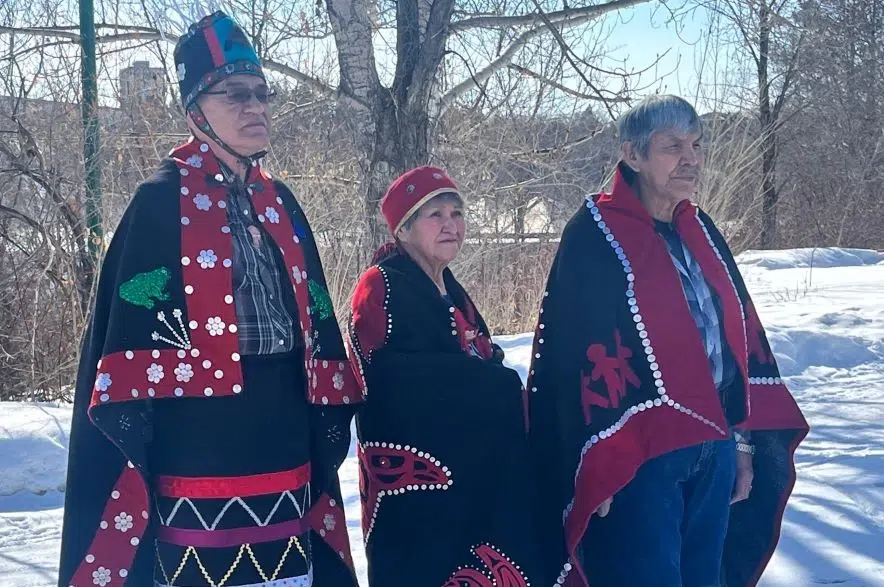It’s a long way from the rugged Hazelton mountains in west-central B.C. to the Bessborough Hotel in downtown Saskatoon.
That’s where the RBC Annual and Special Meeting of Common Shareholders will take place today, and where about a dozen members of the Wet’suet’en First Nation may take their protest against the bank and its funding of the Coastal Gaslink pipeline.
According to hereditary Chief Na’Moks, RBC has spent billions of dollars on fossil fuel projects, including the pipeline that runs through Wet’suet’en territory.
“We’re here to bring a message to RBC, its shareholders and its board; that they have to stop financing the fossil fuel industry… why would they put all that money into projects that are killing clean water, our lands and our rights and freedoms” he asked.
Na’moks said there’s been no consultation between RBC and the hereditary chiefs. He cited Supreme Court of Canada 1997 landmark case Delgamuukw vs. British Columbia and said it clearly established aboriginal title as an ancestral right, protected by Sec. 35 (1) of The Constitution Act, 1982.
“We proved that we exist. We proved that we are the authority on the land, and yet, the banks and the fossil fuel industry go around the reserves. The reserves only have authority within the reserve boundary, just like a municipality.
“Our territory belongs to the houses and the clans, and we as the high ranking chiefs speak on behalf of that… they’ve (RBC) absolutely skirted us from day one, and that is illegal,” he said.
He explained that the First Nation drinks out of the local lakes, creeks, and rivers, and there are few places left on earth where that can be done.
“This is what we’re protecting. We’re not doing it just for ourselves. We’re doing it for the betterment of all,” he said. “We are the land. The land is us. We speak on behalf of the water, the trees, the plants the birds, the animals.”
Na’Moks added that they want RBC president and CEO Dave McKay to know “informed consent” was never given for access to their land.
“They’re looking at the bottom line, we are looking at the future,” he said.
According to a statement by RBC released April 3, the company wants to create a dedicated approach to climate policy research and action.
“The (RBC Climate Action) Institute will work closely with businesses and industry partners to design practical ways to reduce net emissions.”
That’s little comfort to the Wet’suet’en, said Na’Moks.
“Money doesn’t last forever. The future is forever if you do it right, and that’s what they need to listen to…telling the truth. The right truth. Not the truth of finance,” he said.











